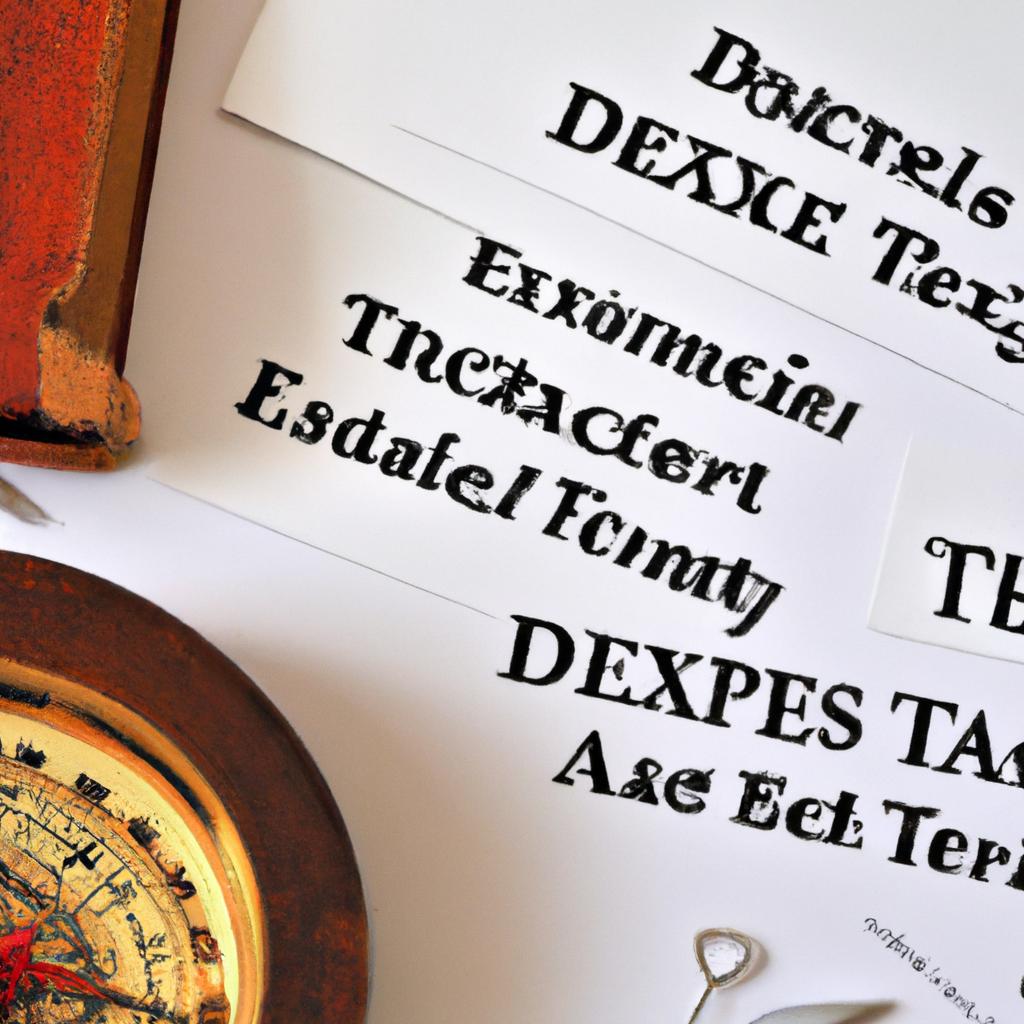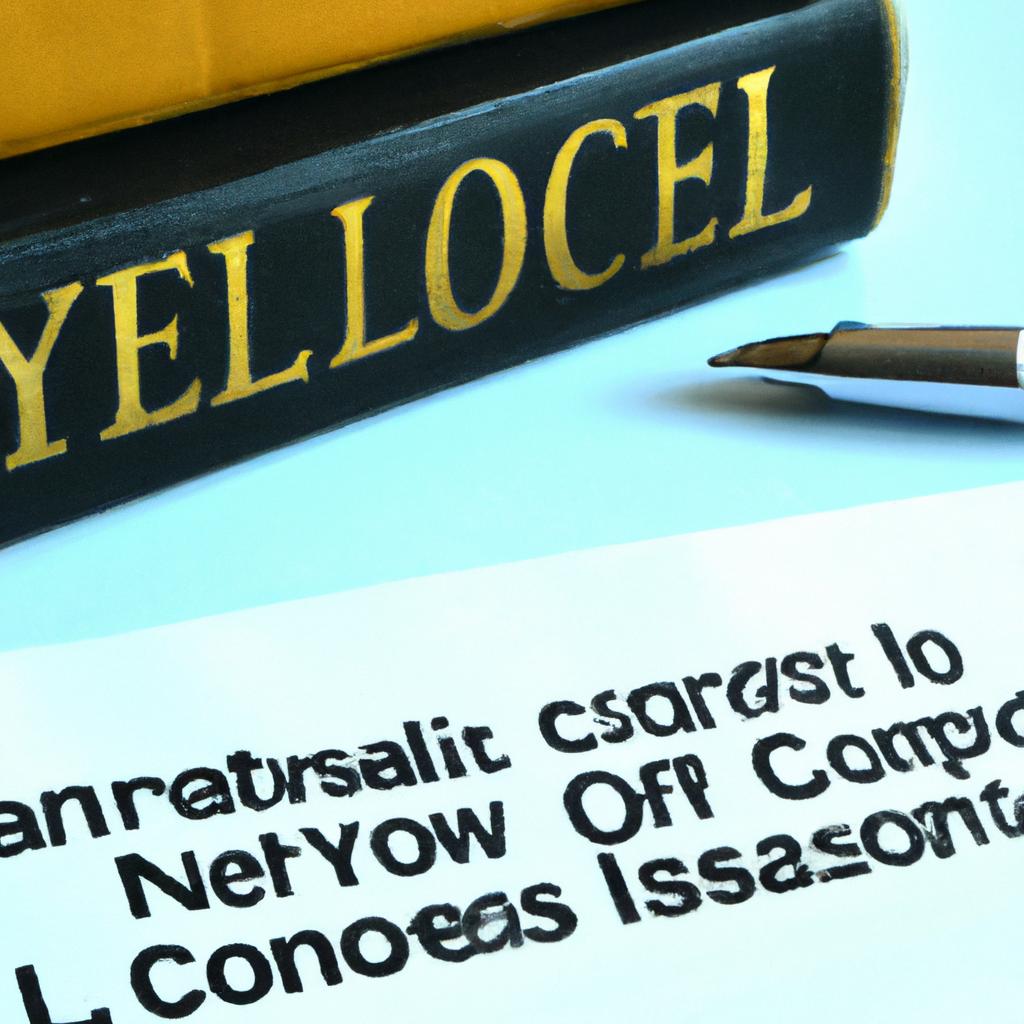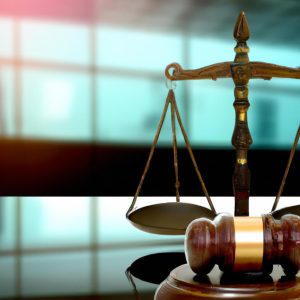Navigating the intricate legal landscape of settling the estate of a deceased person is a task that requires a steady hand and a wealth of expertise. At Morgan Legal Group, located in the heart of New York City, we specialize in providing comprehensive guidance in estate planning, probate, elder law, wills, and trusts. With a meticulous attention to detail and a deep understanding of the complexities involved in the settlement process, our team of experienced lawyers is dedicated to assisting clients in ensuring a smooth and efficient resolution of their loved one’s affairs. In this article, we will delve into the nuances of settling the estate of a deceased person and provide valuable insights to help you navigate this challenging terrain with confidence and clarity.
Estate Settlement Process: Understanding Probate and Non-Probate Assets
In the estate settlement process, it is crucial to understand the distinction between probate and non-probate assets. Probate assets are those that are required to go through the probate court process, while non-probate assets can bypass this process altogether. Probate assets typically include assets solely owned by the deceased without a designated beneficiary, while non-probate assets may include assets with named beneficiaries or assets held in a trust.
During the settlement of an estate, it is important to properly identify and categorize all assets to ensure they are distributed according to the deceased’s wishes. Working with an experienced estate planning attorney can help navigate the complexities of probate and non-probate assets, ensuring a smooth and efficient estate settlement process. At Morgan Legal Group, we specialize in estate planning and probate matters, offering comprehensive legal services to assist clients in New York City.

Navigating the Complexities of Estate Taxes and Debts
When it comes to the settlement of an estate of a deceased person, there are many complexities to navigate, especially when it comes to estate taxes and debts. It is crucial to understand the implications of these factors and how they can affect the distribution of assets to beneficiaries. Proper planning and legal expertise are essential to ensure that the estate is settled in a fair and efficient manner.
At Morgan Legal Group, we specialize in estate planning and probate matters, including navigating estate taxes and debts. Our experienced team is well-versed in the intricacies of estate law and can provide detailed guidance to ensure that the estate is settled according to the wishes of the deceased. We work closely with our clients to develop customized solutions that address their unique needs and circumstances, taking into account all relevant factors such as estate taxes, outstanding debts, and beneficiary claims.

Maximizing Your Inheritance: Strategies for Efficient Estate Distribution
When it comes to the settlement of an estate of a deceased person, it is crucial to follow the proper legal procedures to ensure an efficient and fair distribution of assets. One key strategy for maximizing your inheritance is to work with an experienced estate planning attorney who can help navigate the complex legal requirements involved in the probate process. By seeking professional legal guidance, you can ensure that all necessary documents are properly filed, deadlines are met, and potential disputes are resolved in a timely manner.
Another effective strategy for efficient estate distribution is to create a comprehensive estate plan that clearly outlines your wishes regarding the distribution of your assets. By drafting a legally binding Will or trust, you can specify how you want your assets to be divided among your beneficiaries, minimizing the risk of disagreements or legal challenges down the line. Additionally, working with a knowledgeable attorney can help you take advantage of tax-saving strategies and other estate planning tools to maximize the value of your inheritance.

Ensuring Compliance with New York State Laws: Key Considerations for Executors and Beneficiaries
When settling the estate of a deceased individual in New York State, both executors and beneficiaries must carefully adhere to state laws to ensure a smooth and lawful process. Key considerations for executors include:
- Appointment: Ensure that you have been officially appointed as the executor of the estate through the appropriate legal channels.
- Inventory: Compile a detailed inventory of the deceased person’s assets and liabilities.
- Valuation: Obtain professional appraisals for valuable assets such as real estate, jewelry, and collectibles.
For beneficiaries, it is crucial to:
- Communication: Stay in regular contact with the executor to receive updates on the progress of the estate settlement.
- Documentation: Keep all relevant documents, such as the Will and any amendments, in a safe and easily accessible location.
- Compliance: Follow any instructions or requirements outlined in the Will to ensure a fair distribution of assets.
Q&A
Q: What is the process for settling the estate of a deceased person?
A: The process for settling the estate of a deceased person involves identifying and valuing the assets of the deceased, paying off any debts or taxes owed by the deceased, and distributing the remaining assets to the heirs or beneficiaries.
Q: Who is responsible for settling the estate of a deceased person?
A: The responsibility for settling the estate of a deceased person typically falls to the executor named in the deceased person’s will, or to an administrator appointed by the court if there is no will.
Q: How long does it take to settle the estate of a deceased person?
A: The time it takes to settle the estate of a deceased person can vary depending on the complexity of the estate and any disputes that may arise among the heirs or beneficiaries. In some cases, it can take several months or even years to fully settle an estate.
Q: What happens if someone dies without a will?
A: If someone dies without a will, their estate will be distributed according to the laws of intestacy in their state. A court will typically appoint an administrator to oversee the distribution of the estate to the deceased person’s heirs.
Q: Are there any taxes owed on the estate of a deceased person?
A: Yes, there may be taxes owed on the estate of a deceased person, including estate taxes and income taxes. It is important to work with a tax professional to ensure that all taxes are properly paid during the settlement process.
Wrapping Up
In conclusion, settling the estate of a deceased person can be a complex and emotional process. It requires attention to detail, patience, and understanding from all parties involved. By following the legal procedures and seeking guidance from professionals, the process can be made smoother and more manageable. While it may be a difficult time for those left behind, ensuring that the deceased person’s wishes are carried out and their assets are distributed fairly is a crucial step towards closure and peace of mind. Remember, every individual’s estate is unique, and it’s important to approach the process with sensitivity and care. We hope this article has provided you with some insights and guidance on navigating the settlement of an estate.
 As we go through life, we are often faced with difficult and emotional tasks. One of the most challenging experiences that we may encounter is the loss of a loved one. Along with the grief and emotional toll, the death of a person also brings a set of legal and financial responsibilities. One of these responsibilities is the settlement of estate of deceased person. This process can be complex and overwhelming, especially during a time of mourning. In this article, we will discuss what estate settlement entails, how it works, and the steps involved in the process.
As we go through life, we are often faced with difficult and emotional tasks. One of the most challenging experiences that we may encounter is the loss of a loved one. Along with the grief and emotional toll, the death of a person also brings a set of legal and financial responsibilities. One of these responsibilities is the settlement of estate of deceased person. This process can be complex and overwhelming, especially during a time of mourning. In this article, we will discuss what estate settlement entails, how it works, and the steps involved in the process.
What is Estate Settlement?
Estate settlement refers to the legal process of transferring a deceased person’s assets to their beneficiaries. This process involves settling any outstanding debts, paying applicable taxes, and distributing assets and property to the heirs or beneficiaries as per the wishes of the deceased. Since this process can be confusing and time-consuming, it is important to have a basic understanding of how it works.
Steps Involved in Estate Settlement:
1. Obtain the Will: The first step in the estate settlement process is to locate the deceased person’s will, if there is one. The will is a legal document that outlines the deceased’s wishes regarding the distribution of their assets. If there is no will, the estate will be considered intestate, and the process may take longer as the court will determine the distribution of assets.
2. Appoint an Executor: An executor is a person responsible for handling the estate settlement process. They are typically named in the will by the deceased and are responsible for managing and distributing the assets and settling any debts. If no executor is named, the court will appoint one.
3. Notify Relevant Parties: The executor must notify all relevant parties, such as beneficiaries, financial institutions, and government agencies, of the death and provide a copy of the death certificate. They must also notify any co-executors or trustees named in the will.
4. Inventory of Assets and Debts: The executor is responsible for creating an inventory of all the deceased person’s assets, including bank accounts, investments, real estate, and personal belongings. They must also determine any outstanding debts and taxes owed by the estate.
5. Appraise Assets: The executor must appraise the value of all assets and property to determine their market value. This appraisal helps in determining the estate taxes and the distribution of assets.
6. Pay Debts and Taxes: The executor must use the funds from the estate to pay off any outstanding debts, such as mortgages, loans, and credit card bills. They must also file the necessary tax returns, such as income tax and estate tax.
7. Distribute Assets: Once all debts and taxes have been paid, the executor can distribute the remaining assets to the beneficiaries as per the deceased’s wishes. This can be done in the form of cash, property, or other tangible assets.
8. Final Accounting: After all the assets have been distributed, the executor must prepare a final accounting of the estate’s transactions. This includes a detailed report of all income, expenses, and distribution of assets. The accounting must be approved by the beneficiaries and filed with the court.
9. Close the Estate: The final step in the estate settlement process is to close the estate. This involves obtaining a court order to officially close the estate and distributing any remaining funds to the beneficiaries.
Benefits of Estate Planning:
Having a proper estate plan in place can make the estate settlement process smoother for your loved ones after your passing. Some benefits of estate planning include:
– Ensuring your assets are distributed according to your wishes
– Minimizing estate taxes for your beneficiaries
– Avoiding lengthy and costly legal battles over your assets
– Providing for minor children or dependents
– Protecting your assets from creditors
– Appointing a trusted person to handle your affairs if you become incapacitated
Tips for Estate Settlement:
1. Communicate with your loved ones and let them know your wishes to make the process easier for them after your passing.
2. Keep all important documents, such as wills, insurance policies, and deeds, in a safe and easily accessible place.
3. Regularly review and update your estate plan as life changes occur, such as marriage, divorce, or the birth of a child.
4. Consider seeking the help of a professional, such as an estate lawyer or financial advisor, to ensure all legal requirements are met and taxes are minimized.
In conclusion, the settlement of estate of a deceased person is a complex and emotional process. It involves various steps and legal procedures, and it is crucial to have a basic understanding of how it works. Proper estate planning can make this process smoother and ensure that your loved ones are taken care of according to your wishes. Communicating openly with your family about your wishes and seeking professional advice can also help ease the burden on your loved ones during this difficult time.







